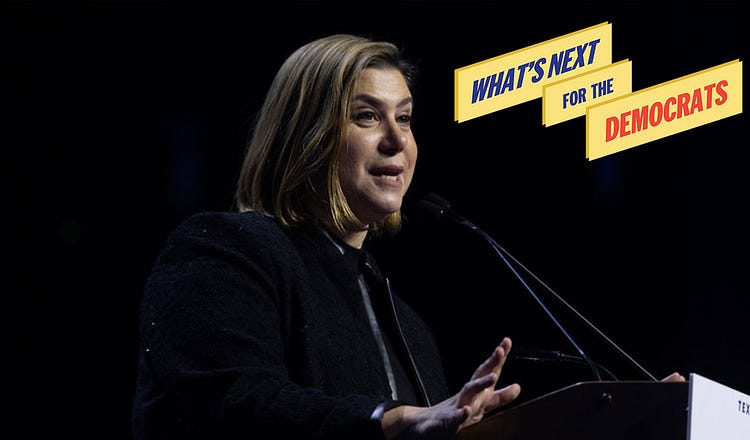
On Monday, Donald Trump will take the oath of office, and all three branches of government will be controlled by Republicans. The Democratic Party is in the political wilderness—and the question is: Who will lead it back to power? What vision can unite the party once again? And what message can rally voters, especially the disaffected Democrats who voted red for the first time this year?
Over the coming weeks, Peter Savodnik is profiling Democrats from very different places and with very different constituencies to ask those questions. Today: Michigan Sen. Elissa Slotkin.
On a recent Tuesday afternoon, I was in Elissa Slotkin’s temporary Senate office in the Hart Senate Office Building, and we were huddled around a secondhand conference table bathed in the glare of the fluorescent overheads. The last rays of the winter sun slanted through the blinds from the other side of the Capitol Rotunda. One of Slotkin’s staffers, young and preternaturally chirpy, handed out miniature bottles of water.
In November, Slotkin, a Democrat and a former CIA analyst, had beaten Republican former congressman Mike Rogers to become Michigan’s next senator by just over 18,000 votes—at the same time that President-elect Donald Trump took Michigan by nearly 80,000.
How did she understand her victory? Slotkin told me she had won because she had “stayed focused on an economic message. Most of my ads were straight to the camera, like, ‘I’m Elissa Slotkin. I want to be your senator, and here’s why,’ ” she said. Another way of saying it might be: Slotkin focused on the normal stuff. The meat-and-potatoes stuff. The stuff voters actually care about.
She was the Democrats’ rare good-news story on election night. As Trump is sworn into office this Monday, the Republican Party, remade in his image, controls not just the White House but both houses of Congress.
The Democratic Party, which turns 200 in 2028 and is the oldest political party in the world, is in shambles. Out of power, yes, but also apparently devoid of purpose. The party of the New Deal and the Great Society, the party that narrowed the gap between the haves and have-nots, is now the party of . . . well, no one can say. And it is entirely unclear who can lead them out of the political wilderness. Will it be the progressive “squad” spearheaded by Representative Alexandria Ocasio-Cortez of New York or will it be “normie” centrists like Slotkin?



